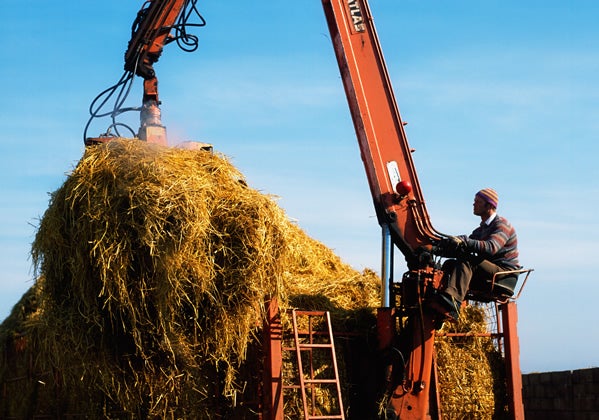How Some Farm Bill Provisions Help Special Interests – And Hurt the Taxpayer
Daren Bakst / Rachel Sheffield /
Tomorrow, the Senate will have a chance to address real reform and the needs of the public, or to go with the status quo and the welfare of special interests.
The New Farm Bill, which is expected to be up for a vote in the Senate tomorrow:
Spends More than the Senate Bill. The Senate farm bill would have reduced farm bill spending by only $17.8 billion despite the fact that spending has gotten out of hand. For example, food stamp spending has quadrupled since 2000. This new bill would actually reduce spending by an even smaller amount, only about $16.5 billion. This is in contrast to the House bill that would have reduced spending by about $51.8 billion.
>>> Check Out: Let Them Eat Cupcakes: 11-Year-Old Entrepreneur’s Dreams Crushed by Overregulation
Fails to Make Important Reforms to Food Stamps. The House bill took modest steps to require work for able-bodied adult food stamp recipients. Their bill also eliminated a policy known as broad-based categorical eligibility that allows households with even an unlimited amount of assets to receive food stamps: for instance, someone could have $100,000 in the bank and still receive food stamps. The Senate bill didn’t address either of these issues. The final farm bill only includes the weakest of work provisions and turns a blind eye to the problem of broad-based categorical eligibility.
Removes Modest Crop Insurance Reform. The Senate bill would have injected a little bit of common sense in the crop insurance program by trying to reduce the premium subsidy level for farmers with an adjusted gross income of $750,000 or more. This minor reform isn’t included in the new farm bill, showing how extreme this farm bill is when it comes to protecting special interests and the wealthiest agribusinesses.
Undermines Efforts to Ensure that Only Those “Actively Engaged in Farming” Receive Subsidies. It’s bad enough that there are so many subsidies. Making the problem even worse is that individuals who have little to do with farming are receiving payments courtesy of taxpayers according to a GAO report among others.
In both the Senate and House bills, there was language that would have clarified that active personal management would no longer meet the “actively engaged in farming” requirement necessary to receive payments; individuals would have to make a significant contribution of personal labor, although there would be an exception for one farm manager per farming operation.
The language in the new farm bill moves away from a bright line rule and delegates to the USDA the power to define “significant contribution of active personal management.” There is no requirement that there be limits placed on what it means to be “actively engaged in farming.” The USDA hasn’t exactly been enthusiastic about making changes to address this abuse. In other words, the status quo or something similar is possible.
Bottom Line
Senator Grassley (R-IA) recently captured the agriculture problems, telling Radio Iowa that the new farm bill was “bad for agriculture, it’s bad for taxpayers who are worried about the debt, it’s bad for our credibility with trading partners, and it’s bad for the future of farm programs.”

